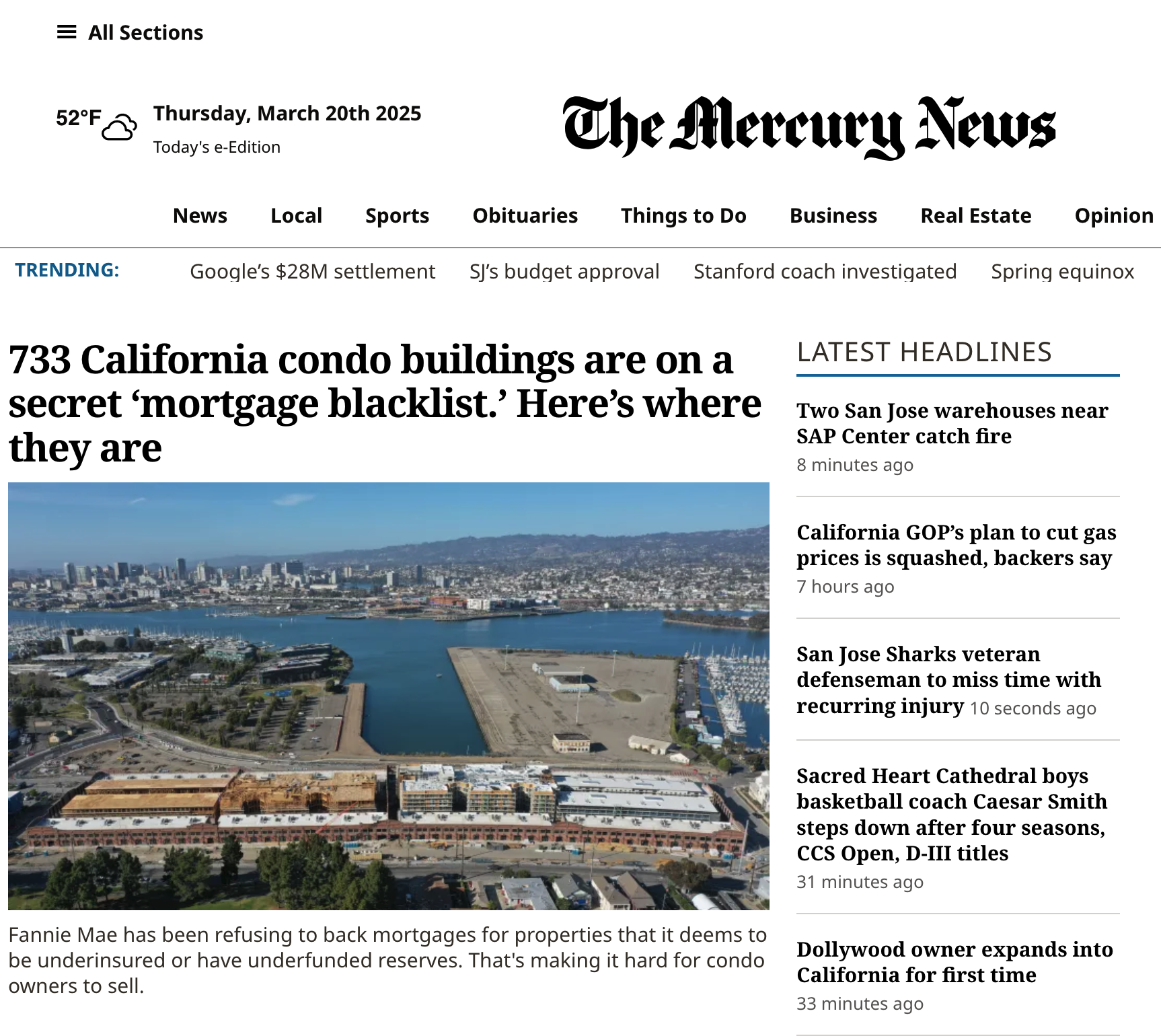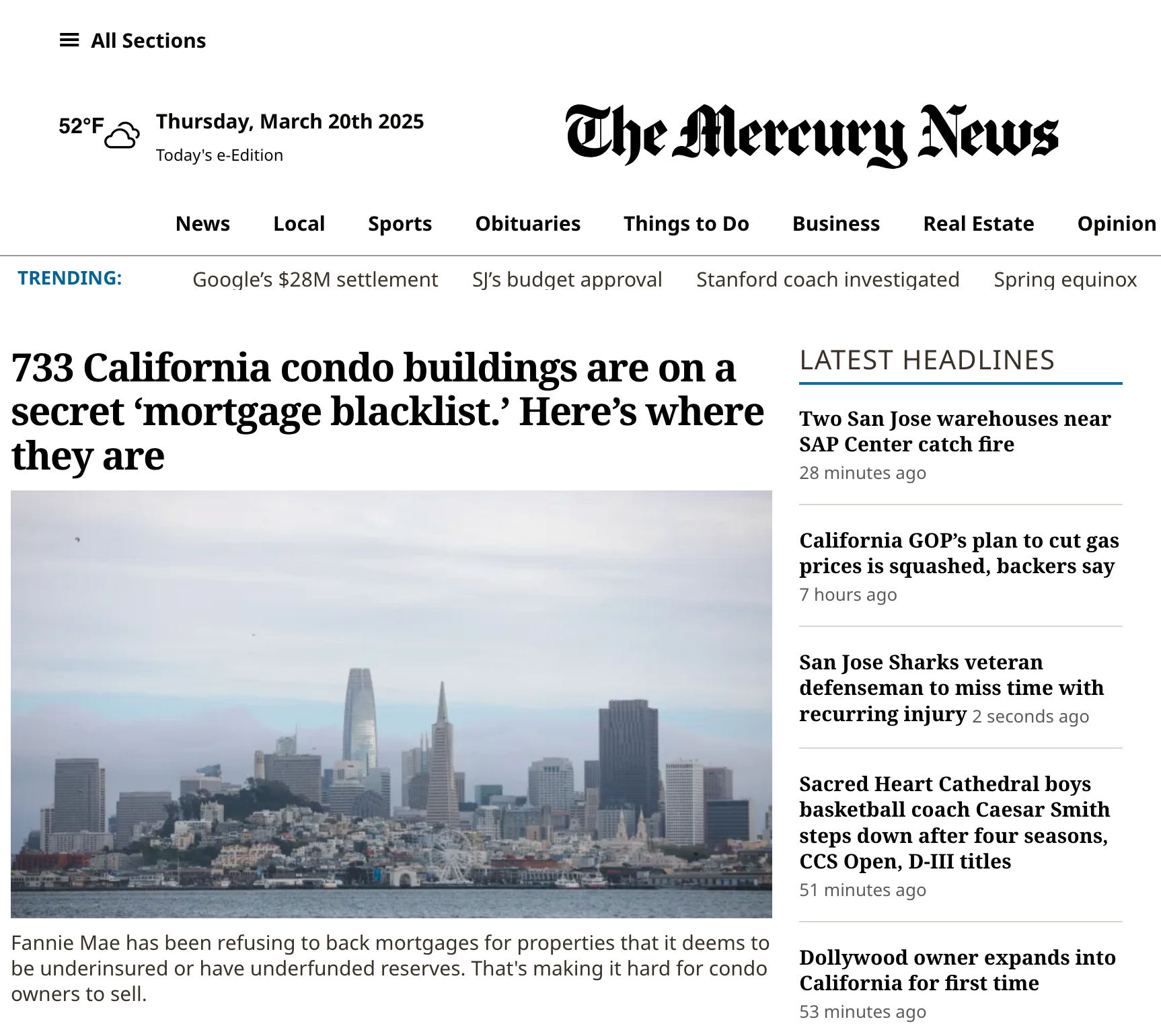This afternoon, while flipping from tab to tab in my web browser, I was intrigued to see Alameda appear on the front online page of the Mercury News:

That's Alameda's former Del Monte warehouse — now fully converted to residential units under the name "Star Harbor."
The article began:
About 700 condominium complexes around California have been placed on a “mortgage blacklist” that is creating a headache for owners looking to sell their properties and, in many cases, forcing them to lower their asking price.
The list — reported on by the Orange County Register and the Wall Street Journal — is maintained by Fannie Mae, a government-sponsored entity that doesn’t issue loans, and its sister company, Freddie Mac, which together buy up nearly half of all home loans and bundles them to sell to investors.
Inclusion on the blacklist can make it nearly impossible for buyers to get a conventional loan — the kind that Fannie buys and guarantees, which are cheaper than other mortgages and require lower down payments.
Fannie’s list, which includes 168 condo complexes in the five-county Bay Area, has been growing in recent years as it looks to protect itself from taking on mortgages for properties that it considers to be underinsured, dilapidated or lacking sufficient reserves.
That doesn't sound like good news to the residents of the nicely renovated Del Monte warehouse!
I kept reading, and then I clicked through the interactive map...
... but found no count for Alameda.
Turns out there are zero condo complexes in the City of Alameda currently on these "mortgage blacklists." While the photo was of a specific multi-family housing complex — and even named it in the caption — that complex was not actually relevant to the article.
Anyway, thinking about it, the Del Monte warehouse isn't even a condo complex. No one is getting Fannie- or Freddie-backed mortgages to rent apartments in Star Harbor currently.
Thanks to California's construction defect laws, the buyers of condos are highly incentivized to sue builders within 10 years of construction completion. To avoid these costs, many builders rent the units as apartments for 10 years, and then, once the statute of repose for construction defects has passed, they then sell the units as condos.
So I was both partially right and partially wrong: Star Harbor is currently acting as an apartment complex — eventually it will act as a condo complex.
Being an overly detailed person, instead of command-tab'ing back to my actual work in other browser tabs, I emailed the reporter and the Bay Area News Group's general editor inbox — and they promptly changed the photo:

On the upside, it's nice to know that Alden Global Capital — the private equity firm that's been sucking dry the Mercury News and East Bay Times like a vampire — hasn't yet laid off all their staff. (Thank you and good luck to them!)
On the downside, even if this particular issue doesn't currently affect specific condo complexes in Alameda, the constraints and costs of insurance are yet more factors making it challenging to build and maintain multi-family housing in the Bay Area and across California.